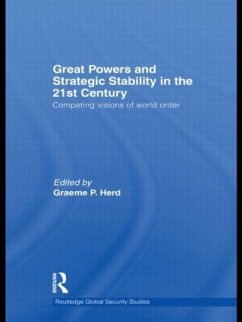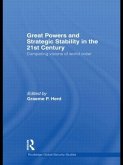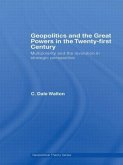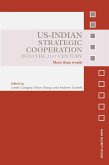This book addresses the issue of grand strategic stability in the 21st century, and examines the role of the key centres of global power - US, EU, Russia, China and India - in managing contemporary strategic threats. This edited volume examines the cooperative and conflictual capacity of Great Powers to manage increasingly interconnected strategic threats (not least, terrorism and political extremism, WMD proliferation, fragile states, regional crises and conflict and the energy-climate nexus) in the 21st century. The contributors question whether global order will increasingly be characterised by a predictable interdependent one-world system, as strategic threats create interest-based incentives and functional benefits.¿ The work moves on to argue that the operational concept of world order is a Concert of Great Powers directing a new institutional order, norms and regimes whose combination is strategic-threat specific, regionally sensitive, loosely organised, and inclusive of major states (not least Brazil, Turkey, South Africa and Indonesia). Leadership can be singular, collective or coalition-based and this will characterise the nature of strategic stability and world order in the 21st century.¿ This book will be of much interest to students of international security, grand strategy, foreign policy and IR. Graeme P. Herd is Co-Director of the International Training Course in Security Policy at the Geneva Centre for Security Policy (GCSP). He is co-author of several books and co-editor of The Ideological War on Terror: World Wide Strategies for Counter Terrorism (2007), Soft Security Threats and European Security (2005), Security Dynamics of the former Soviet Bloc (2003) and Russia and the Regions: Strength through Weakness (2003). ¿
Hinweis: Dieser Artikel kann nur an eine deutsche Lieferadresse ausgeliefert werden.
Hinweis: Dieser Artikel kann nur an eine deutsche Lieferadresse ausgeliefert werden.








